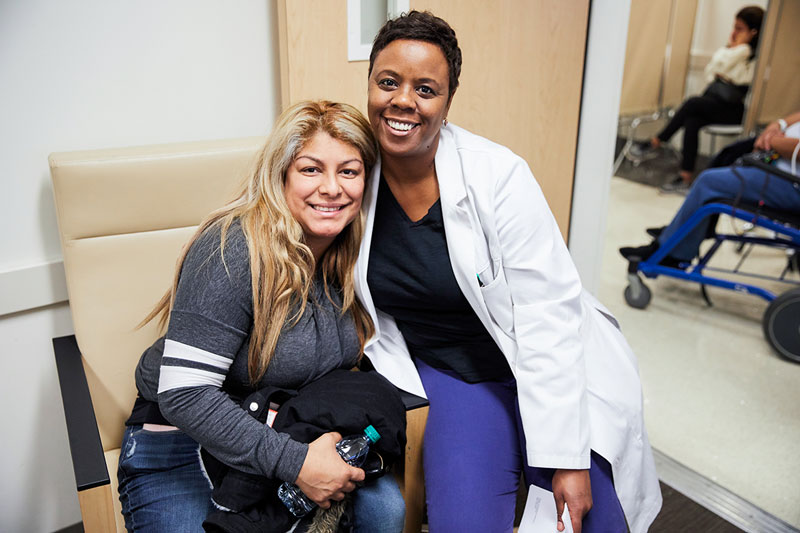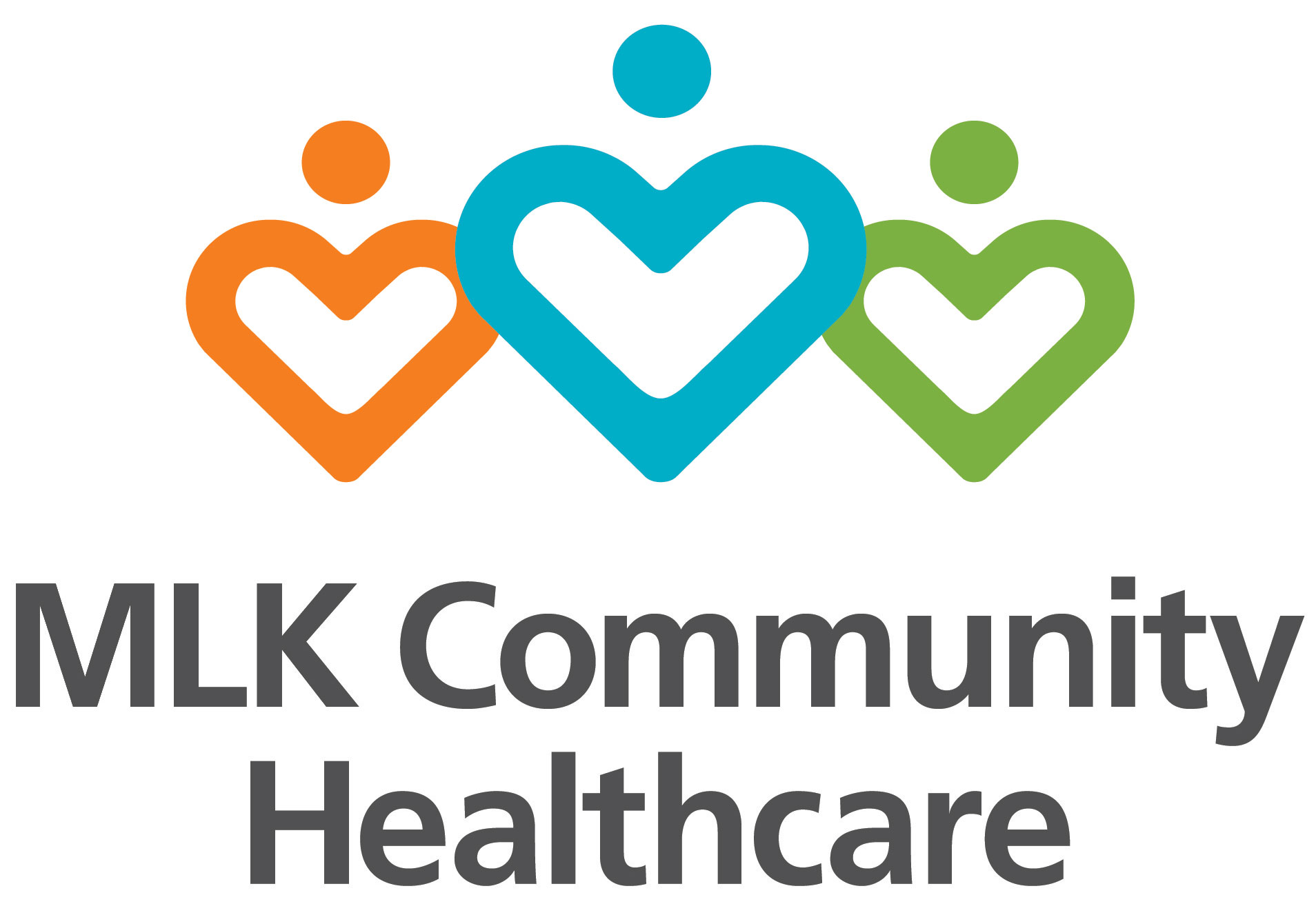Residents at MLKCH will gain educational experience throughout the three-year Internal Medicine Residency Program, including critical care medicine, endocrinology, pulmonology, cardiology and more. MLKCH believes that this is the best way to enhance the inpatient and outpatient education experience. During the one-week ambulatory, Residents will also have dedicate protected time for quality, research and scholarly activity.
The Program
Our goal is to provide compassionate, collaborative, quality care, and improve the health of our community.
Curriculum and rotations
4+1 Rotations
Residents will complete a 4-week traditional block rotation (e.g., wards, subspecialty, emergency department, electives, etc.) and then one week of ambulatory and didactic training. Each week, a different cohort of residents rotates through the continuity clinic, and this cycle repeats every five weeks.
At any given time, there is one cohort on a continuity clinic week (referred to as the “+1″ week), and the other four are on hospital medicine or subspecialty rotations.
Rotations include:
Cardiology
Continuity Clinic
Critical Care Medicine
Emergency Department
Endocrinology
Gastroenterology
Geriatrics
Hematology
Infectious Diseases
Inpatient General
Medicine
Nephrology
Neurology
Night Float
Oncology
Pulmonary Disease
Rheumatology
Sample Schedule
| PGY1 | PGY2 | PGY3 |
|---|---|---|
| Wards: 16 weeks | Wards: 16 weeks | Wards: 8 weeks |
| Cardiology: 4 weeks | Continuity Clinic: 10 weeks | Continuity Clinic: 10 weeks |
| Pulmonary: 4 weeks | Geriatric: 4 weeks | MICU: 8 weeks |
| Continuity Clinic: 10 weeks | Gastroenterology: 4 weeks | Rheumatology: 4 weeks |
| Hematology: 4 weeks | Night Float: 4 weeks | Infectious Disease: 4 weeks |
| Night Float: 4 weeks | MICU: 8 weeks | Night Float: 4 weeks |
| Neurology: 4 weeks | Elective: 6 weeks | Elective: 6 weeks |
| MICU: 8 weeks | Nephrology: 4 weeks | |
| Elective: 2 weeks | Emergency Medicine: 4 weeks | |
| Endocrinology: 4 weeks |
Curriculum
Interprofessional Bedside Rounds – Our board certificated Hospitalist will lead daily bedside teaching rounds to develop fundamental clinical skills, diagnostic reasoning, pathophysiology and professionalism.
Continuity and specialty clinics – Residents will assist/engage directly with attending’s on specialty care needs relevant to internal medicine, including cardiology, endocrinology, pulmonology and more.
Community-based care – Work on data-driven, community-based population health initiatives.
EMR training – Comprehensive training in MLKCH’s state-of-the-art EMR system. Quality & Safety Conference – Residents will acquire education through robust curriculum on identifying system failures, addressing vulnerabilities in the system, reducing risk, and improving patient safety.
| Didactic Session | Frequency/Day |
|---|---|
| Morning Report | Weekly |
| Noon Conference | Weekly |
| Morbidity and Mortality Conferences/Patient Care Quality Conferences | Monthly |
| Journal Club (Switch off in and out of the hospital) | Monthly |
| Quality Improvement Projects | Monthly |
| Grand Rounds | Monthly, every 4th Thursday |
| Board Review | Monthly |
| Ultrasound and Procedure Workshop | Quarterly |
| Problem-Based and Team-Based Learning Activities | Quarterly |
| Social Medicine Didactics | Monthly |
| Role Playing and Simulation Training | Semiannually |
| Bedside Physical Examination Rounds | Monthly |
| EKG Conference | Monthly or Every Other Month |
| High Value Care Conference | Monthly | Ambulatory Case Conference | Monthly |
| Other Conferences: | |
|---|---|
| Resident Forum* | Monthly |
| Resident Wellness | Quarterly |
Social Medicine
Social medicine is an essential part of the MLKCH residency experience. Residents will engage in a range of topics related to health equity, including:
- The social determinants of health
- Health inequities
- The intricacies of race and poverty
- The social meanings of disease
- Explanations for the disparities in treatment access and health outcomes
- Strategies for increasing value in health care
- Analysis of institutional, economic, and cultural dynamics that shape social and medical responses to disease
- Ambulatory experience
- Street Medicine

By understanding the social determinants of health and its relationship to clinical care, our residents will be able to practice in a comprehensive manner that addresses the root cause of disease and illness and better advocate for the social inequities that have existed for generations.
Dr. Sharp: IMRP Faculty, Chair, Acute Care Services Committee; Chair, Bioethics Committee
